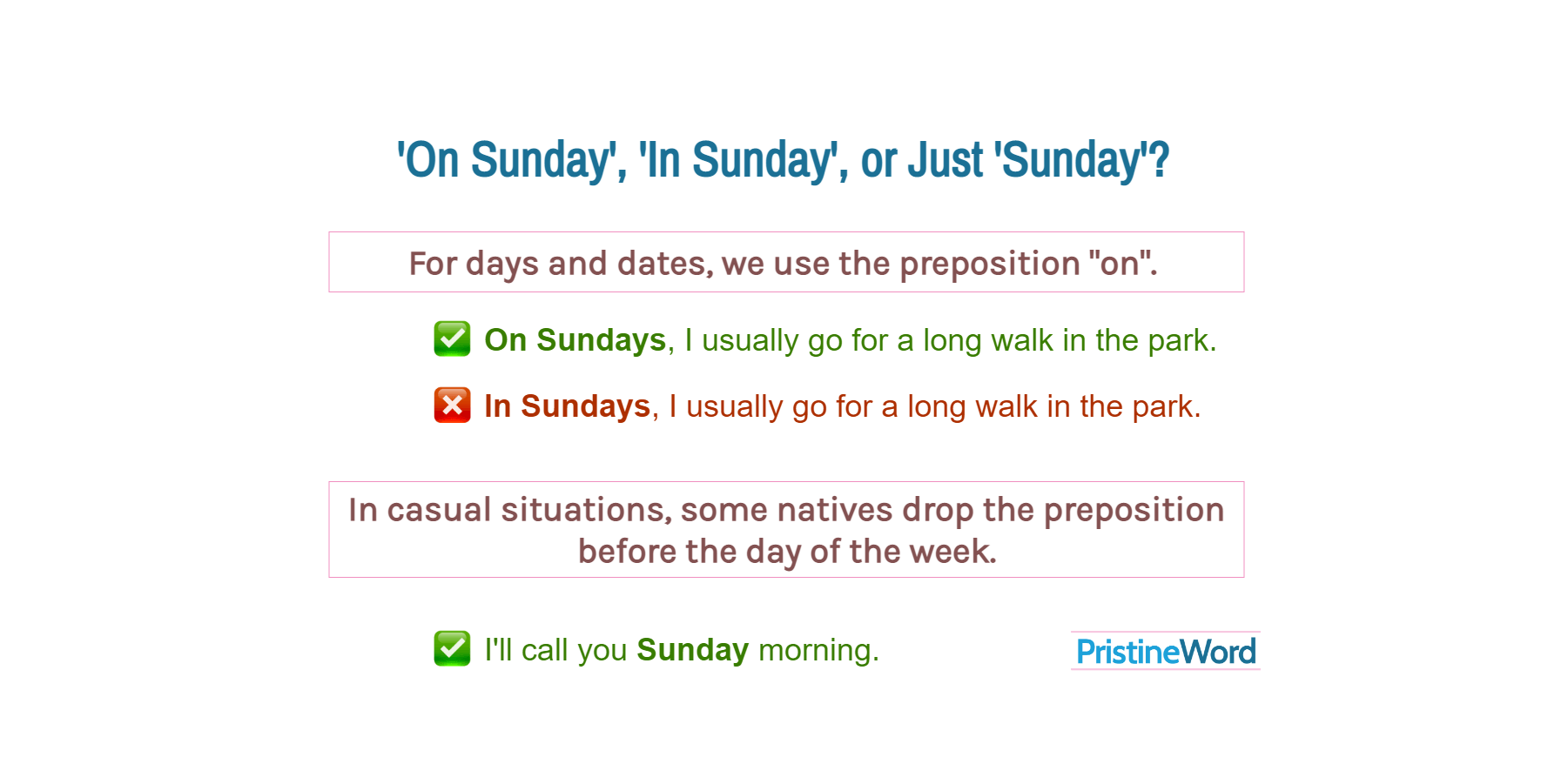It's on Sunday. For days and dates, we use the preposition "on". In casual situations, many natives omit the preposition before the days of the week.
It's "on Sunday". For days and dates, we use the preposition "on".
On Sunday, our family gathered to enjoy a delicious burger meal.
In Sunday, our family gathered to enjoy a delicious burger meal.
You can also add "on" when using the plural form (on Sundays).
I often go for a long walk on Sundays.
In casual situations, many natives omit the preposition before Sunday. This is more common in American English.
I'll call you Sunday morning.
I'll call you on Sunday morning.
Use the article "a" to talk about one of the Sundays in the year.
Her birthday's on a Sunday this year.
Alternatively, you can use other determiners or adjectives, such as:
-
This:
Remember, this Sunday is Father’s Day.
-
Last:
Last Sunday, we went for a relaxing hike in the mountains.
-
Next:
We'll be attending a church service next Sunday.
-
Every:
Every Sunday morning, Olivia wakes up early to practice yoga.
When we say "this", "last", "next", or "every", we don't use the preposition "on".
I'll call you next Sunday.
I'll call you on next Sunday.
Follow the same strategy with the rest of the days of the week:

